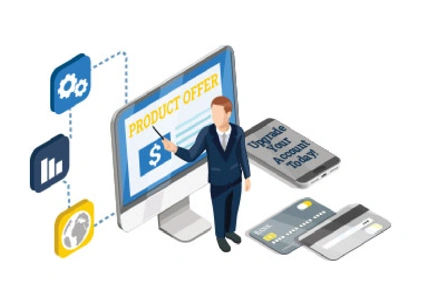The ability of call center agents to deliver exceptional customer experiences (CX) hinges on their mastery of soft skills. These skills—ranging from active listening to conflict resolution—are vital for creating positive interactions, building rapport, resolving issues effectively, and ensuring customer satisfaction.
Recognizing the importance of these competencies, SQM Group has introduced an innovative solution: on-demand online agent self-CX soft skills training delivered through the mySQM™ QA software. This cutting-edge approach allows agents to independently enhance their skills and knowledge without the need for direct supervision or structured training programs.
In this blog, we will delve into the key aspects, benefits, and components of this transformative self-training model.
![]()
Why are CX Soft Skills Important?
Before exploring the specifics of agent self-training, it is crucial to understand why CX soft skills are essential in the call center environment. These skills encompass a range of interpersonal abilities that enable agents to handle customer interactions with empathy, clarity, and efficiency. Key soft skills include:
Active listening involves fully concentrating, understanding, paraphrasing, clarifying, and remembering what the customer is saying. This technique ensures that agents accurately comprehend customer needs and concerns, leading to more effective and satisfactory resolutions.
Empathy in a call center context refers to the ability of agents to emotionally connect with customers, recognizing and understanding their feelings and perspectives. Demonstrating empathy helps build trust and rapport, making customers feel valued and respected.
Effective communication entails agents using clear, concise, and appropriate language and tone to convey information and emotions. This ensures that customers feel heard, understood, and reassured, thereby enhancing their overall experience.
Problem-solving in a call center involves the agent's ability to identify the root cause of customer issues and devise practical, effective solutions. This skill is crucial for resolving problems efficiently and preventing recurring issues, thereby improving customer satisfaction.
Conflict resolution is the process by which agents manage and de-escalate disputes or complaints from customers. This involves maintaining a calm demeanor, actively listening, and addressing concerns to reach a mutually satisfactory resolution.
Stress management involves techniques and strategies that agents use to maintain composure and effectiveness under pressure. This can include mindfulness exercises, breathing techniques, and time management, which help agents provide consistent and high-quality service..
First-Call resolution refers to the ability of call center agents to successfully address and resolve customer inquiries or problems during the first interaction. This involves using the right approach and language to ensure that customers leave the call satisfied with their issue resolved.
Agent Self-Training for CX Soft Skills
SQM's on-demand agent self-CX soft skills training empowers agents to take charge of their professional development. Delivered through the mySQM™ QA software, this training model offers a flexible, customized, and cost-effective solution for skill enhancement.
Active Listening
Active listening is a foundational skill for any call center agent. Through mySQM™ QA software, agents can engage in exercises designed to improve their listening abilities. This includes techniques such as paraphrasing customer concerns to ensure understanding, clarifying ambiguous points, and summarizing key details. By practicing these techniques, agents can develop a deeper understanding of customer needs and respond more effectively.
Empathy
Empathy is the cornerstone of exceptional customer service. Agents can use self-training exercises to practice putting themselves in the customer's shoes and responding with genuine understanding and compassion. These exercises often involve role-playing scenarios where agents must navigate emotionally charged interactions, fostering their ability to connect with customers on a personal level.
For example, an agent can make up a situation where a customer calls in very upset because their internet service has been down for several days. The agent can then practice handling this type of call by role-playing with another agent or a supervisor.
Effective Communication
Clear and professional communication is crucial for resolving customer issues. mySQM™ QA software provides agents with resources to enhance their verbal communication skills. This includes guidance on using appropriate language and tone, as well as strategies for conveying empathy and confidence. Agents can practice these techniques through simulated interactions, helping them to communicate more effectively in real-world scenarios.
For example, mySQM™ QA software can teach an agent how to adjust their tone of voice. The tone of voice is over five times more impactful than word choice in a conversation. By improving the tone of voice, you can significantly improve customer satisfaction and first-call resolution.
Problem-Solving
Effective problem-solving requires a methodical approach to identifying the root causes of issues and proposing viable solutions. Self-training modules within the mySQM™ QA software allow agents to simulate common customer problems and brainstorm potential resolutions. By practicing these techniques, agents can develop their critical thinking skills and become more adept at handling complex issues.
For example, mySQM™ QA software allows an agent to simulate that a customer is having issues with their online account access. This allows the agent to practice problem-solving by systematically checking for common problems, verifying the customer's details, and identifying that the issue is due to a recent security update.
Conflict Resolution
Handling conflicts calmly and effectively is a critical skill for call center agents. Through role-playing scenarios, agents can practice techniques for managing and de-escalating customer conflicts. This includes staying calm under pressure, listening actively, and finding mutually agreeable solutions. These exercises help agents build confidence in their ability to handle difficult interactions.
For example, an agent could practice de-escalation techniques by role-playing a customer who is irate about a missed delivery. The agent would acknowledge the frustration, apologize, and offer a solution (e.g., expedited shipping or a discount on the next order).
Stress Management
Customer service can be a demanding job, making stress management an essential skill. The mySQM™ QA software offers training modules on techniques for managing stress and maintaining composure. This may include mindfulness exercises, breathing techniques, and time management strategies. By incorporating these practices into their daily routines, agents can improve their overall well-being and performance.
For example, agents could practice a 10-minute mindfulness exercise focusing on deep breathing and relaxation, followed by a discussion on how to apply these techniques during high-stress situations.
Call Resolution
First-call resolution is a key metric for customer satisfaction. The mySQM™ QA software focuses on helping agents develop the skills needed to resolve customer inquiries or problems on the first call. This includes using the right words and approach to address the issue effectively. By mastering these techniques, agents can reduce call handle times and improve customer satisfaction.
Measuring First Call Resolution can be complex. mySQM™ QA software removes the complexity of measuring FCR and provides an accurate FCR rate using multiple methods to calculate it. For example, mySQM™ QA software measures the FCR rate using internal (e.g., case management/CRM) and external (e.g., post-call surveys) methods.
Leveraging the QA data can help improve FCR rates and CX in several ways:
- QA data is critical for identifying new insights into customer interactions.
- QA data serves as a check to ensure your agents adhere to your FCR best practices.
- QA data assists call centers, supervisors, and agents in benchmarking FCR, and this performance insight will motivate agents to improve CX.
- QA data is used to create an agent dashboard that agents can use to visually view their performance for KPIs such as FCR, Csat, and CX benchmark rank.
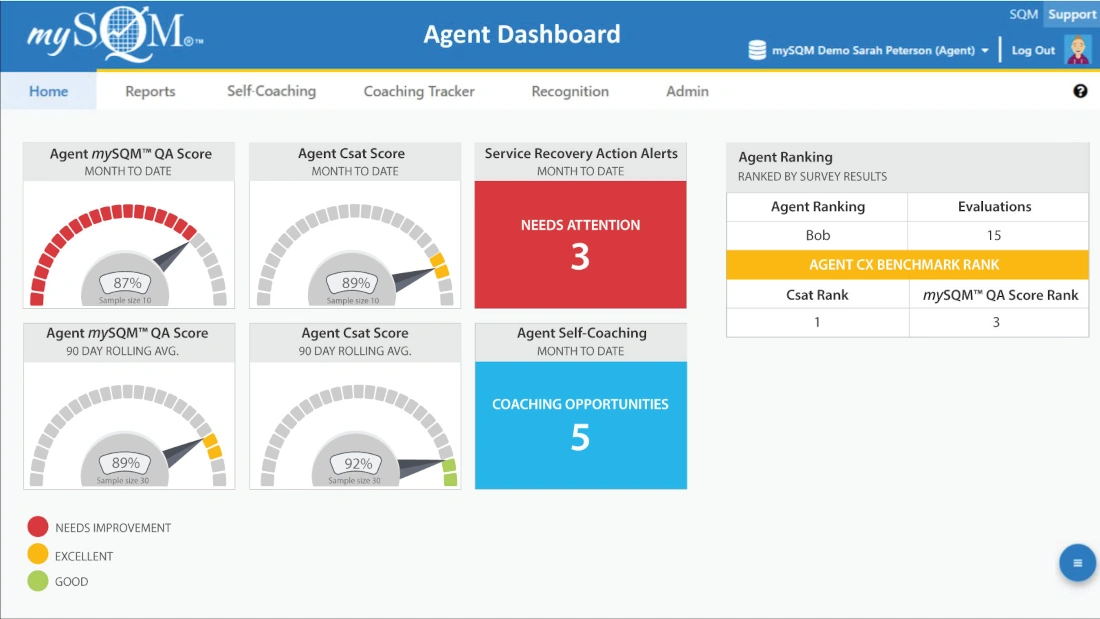
What are the Key Components of Agent Self-Training?
The mySQM™ QA software provides a comprehensive framework for agent self-training, incorporating several key components:
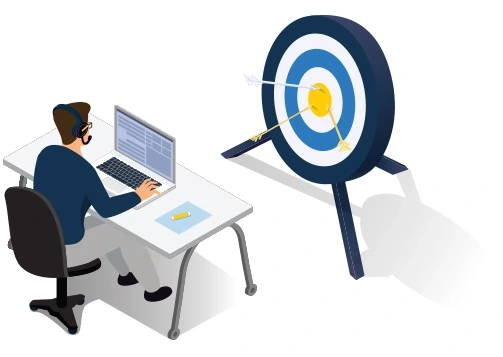
Role-Playing
Simulation quality assurance software allows agents to practice resolving calls and delivering great customer satisfaction through role-playing scenarios. This hands-on approach enables agents to apply their skills in a controlled environment, gaining confidence and proficiency.
Self-Assessment
Agents can take quizzes and tests to gauge their understanding of CX soft skills and identify areas for improvement. These assessments provide valuable feedback, helping agents focus their training efforts on specific skills that need enhancement.
mySQM™ QA Tool
The mySQM™ QA tool serves as the backbone of the self-training program, delivering customized training modules, simulations, and assessments. This integrated platform ensures that agents have access to all the resources they need to develop their CX soft skills.
What are the Benefits of Agent Self-CX Soft Skills Training?
The on-demand agent self-CX soft skills training offered through the mySQM™ QA software provides numerous benefits for both agents and organizations:
- CX Improvement: The training has a proven track record of improving CX. By enhancing their soft skills, agents can deliver better customer experiences, leading to higher satisfaction and loyalty.
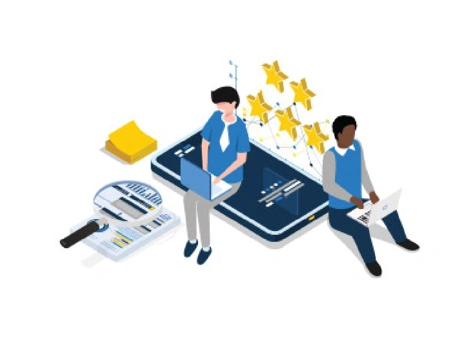
- Flexibility: Agents can learn at their own pace and on their own schedule. This flexibility allows them to balance training with their other responsibilities, ensuring continuous professional development without disrupting their workflow.
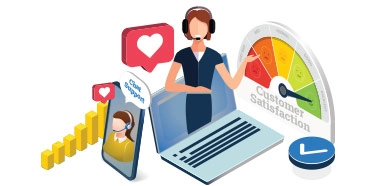
-
Customization: The training allows agents to focus on areas where they need the most improvement. By tailoring their learning experience, agents can address specific weaknesses and build on their strengths.
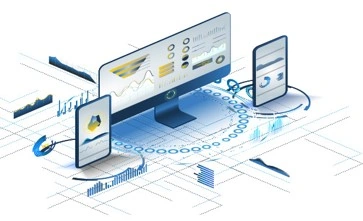
-
Cost-Effective: The self-training model reduces the need for formal training programs and associated costs. Organizations can invest in the mySQM™ QA software as a scalable solution for continuous agent development.

-
Empowerment: Encouraging self-training fosters a sense of responsibility and self-motivation among agents. By taking control of their professional growth, agents become more engaged and committed to delivering exceptional customer service.
